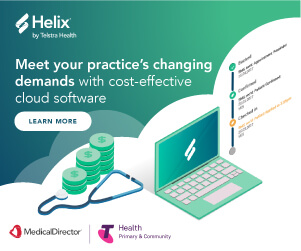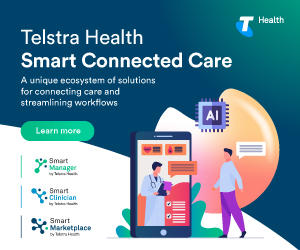Why big data is spurring cloud adoption in healthcare
There is increasing pressure on healthcare providers to manage big data, secure it better with the right data governance structures and leverage it to gain deeper patient insights at scale. And it’s no surprise why more healthcare providers are turning to the cloud ecosystem as a solution.
Leveraging data to enable better health outcomes
Producing metrics, analysis and reports that support better health decision making, population health management initiatives and evidence-based medicine are amongst a growing pool of healthcare efforts that depend on identifying accurate, actionable data. At the same time, organisations are leveraging data to enable better, personalised care, manage chronic illnesses and identify higher-risk patients for hospital readmissions.
Meanwhile, electronic patient records continue to increase in size. And a surge in patient data volumes is putting healthcare organisations under pressure to find more effective solutions to managing and storing sensitive patient data.
Data-driven cloud adoption
In the US, the 2017 TechTarget purchasing intentions survey, conducted in conjunction with the College of Health Information Management Executives, showed that increased healthcare data storage needs were driving health IT technology purchases at 30 per cent of respondents’ organisations. That number was at 19 per cent just a year earlier.
Last year, a survey conducted by KLAS Research found 70 per cent of healthcare organisations in the US have moved at least some applications or IT infrastructure off-premises and over half of those healthcare organisations have moved their electronic medical record (EMR) applications to a hosting or cloud environment. Among the surveyed healthcare provider organisations, cloud infrastructure providers were the most commonly considered.
In Australia, a white paper by MedicalDirector revealed the benefits of cloud-based health solutions, with, 64% of respondents admitting they consider flexibility to be the main benefit of using a cloud-based HER/PMS systems.
Data security challenges
But while MedicalDirector’s report showed ‘data’ is now recognised as the bedrock of high quality healthcare in Australia, many working in the industry still don’t have a complete understanding of what data sharing, cloud and interoperability actually involve and are therefore reluctant to embrace it.
Many in the medical industry are unsure about the security of moving sensitive patient information around, especially now given the rise of cyber attacks, data breaches and tougher cyber security laws. In fact, 76% consider the security of information being stored or sent their greatest area of concern in regards to managing patient information.
Although 80% of respondents recognised the value of real-time collaboration, and data sharing as having the potential to optimise the industry, lack of understanding and anxieties still exist around security, presenting significant hurdles to its industry-wide uptake.
Meanwhile only a third of respondents were satisfied with the current flow of information between their practice and other healthcare providers.
Choosing the right scalable cloud-based solution
To harvest best results, healthcare organisations need to utilise highly integrated, cloud-based interoperable systems that enable not only effective data management and security, but also offer infinite scalability. Cloud computing architecture enables large data sets to be hosted, maintained, easily accessed and rapidly analysed, making big data queries easier to process in a timely and cost-effective manner.
And new technological advancements like MedicalDirector’s Helix platform have made it possible for health organisations to retire legacy data management tools in favour of more flexible, scalable solutions to meet their needs. Such reputable cloud providers also offer state of the art security and also comply with strict data protection standards.
By helping to remove the traditional shackles of infrastructure, healthcare organisations that embrace cloud can leverage data in a secure, scalable way and achieve a more effective big data strategy that ultimately drives better patient outcomes.









